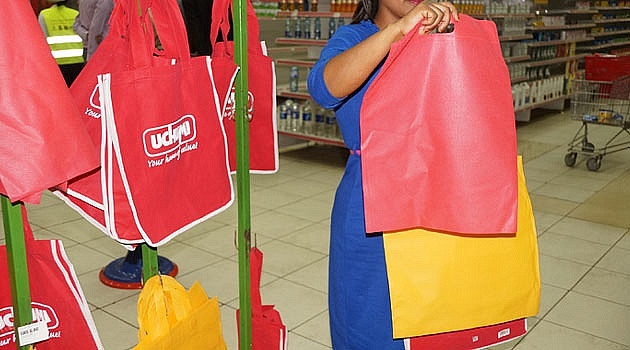Public Health Questions And Supermarkets Profiteering From The Plastic Ban
Yesterday, I needed to buy some vegetables and I was short of time so I went to the supermarket, something I have not done since the plastic ban came into effect. It was not only an unpleasant task, it left me with questions insofar as public health matters are concerned.
In the past, the vegetable section was a joy to shop in. You would find gloves for handling the vegetables, and polythene bags into which you would place your vegetables to provide a barrier against your other shopping in the cart and to allow for easier weighing. This has changed. Of course, there are no gloves, and the supermarket does not have alternative paper bags to put your vegetables in. So when you pick 20 tomatoes, you place them directly on the cart, even if the rest of your shopping includes roach-kill 😀 . Thankfully, I had only bought some soap, milk, and some uji flour, nothing poisonous.
The weighing was even more comical. The attendant tried to fit my tomatoes onto the flat weighing scale, a task that proved to be difficult, as an errant tomato tumbled off the scale onto the floor. He abandoned the rest to chase the errant one, reminding me of the Bible story where the shepherd abandons 99 sheep to hunt for the 1 that has strayed. As for the leafy vegetables, he asked me to count the bundles for him, which he keyed in and handed me the sticky receipt. I wasn’t sure whether to stick it on my forehead, or on the spinach, so I opted to stick it on the shopping cart.
At the till more drama ensued. To make work easier, I had detached the receipt from the shopping cart and affixed it to my thumb ready to hand it over to the cashier – a gentleman who is evidently familiar with this task, unceremoniously yanked it off my thumb, almost taking a piece of the skin with him. Who knew these stickers had glue this strong? I might need some for my home art projects.
I paid for my shopping, handed over my 3 tote bags so that the kind assistant could pack them into various groups – despite the ban, I will not mix my soap, with food, and the wet milk packets. He packed everything, till he got to the spinach:
“Unataka tufanye nini na hizi madam?” He asked upon realising that the long stems won’t fit in any of my bags.
“Sasa sijui, itabidi unisaidie.” Me playing dumb because I’m not about to pay 100 bob for a bag, to pack my 75 bob worth of vegetables in.
The helpful young man found a long carton that could fit the stems and packed them for me. I was so grateful, I didn’t check what the carton originally had, until I got home.
It was a soap carton.
My opinion on the plastic bag ban is well known – we are treating symptoms, without fixing the real cause of the waste disposal problem, which will persist no matter what type of carrier bags we use. However, we long-suffering Kenyans are known to adjust fast to these things, and for that reason, we have bought cloth bags, and the polythene collection under our sinks has been replaced by a growing collection of some cheap bags which I’m told are made from cornstarch. In my house, we have started calling these bags “makamasi bags” because they disintegrate when you try to wash them – they are being sold at between 10-20 bob in supermarkets, as the replacement packaging option.
I however have a number of questions:
- Aren’t there public health regulations that govern retail entities that also sell food items, and has the ban caused us to totally disregard these regulations? Last week when I bought meat, the butcher told me that they were re-using tea packaging paper – it looked like cement packaging paper, but I opted to trust him because I really wanted to eat meat. Is this paper clean and disease free? Others are using newspapers, such that one Twitter user complained of picking pieces of newspaper off his meat. I don’t think public health officials approve of the packing of my spinach in a soap carton either. Doesn’t the seller have the duty to package their wares in a hygienic manner, as part of their public health requirements? Why has this duty been passed onto the buyer?
- Why are supermarkets selling packaging material, without offering a free paper option, which some like Nakumatt offer in Kigali for example? Even worse, it seems they are selling these light makamasi bags at upwards of 100% profit. Polythene was beneficial to us and the supermarkets, shouldn’t it follow that the cost of the ban should be borne by both entities?
Finally, other than the ban, what else has been done to ensure that we are managing waste better? Plastic is still with us – bread, sugar, rice and other manufactured items will still come in plastic packaging. What will ordinary citizens do with that plastic. Can they re-use it without punishment? Can I for example, use the bread bag to buy tomatoes at the supermarket next time? That might save the assistant from running after tomatoes across the shop floor.






2 Comments